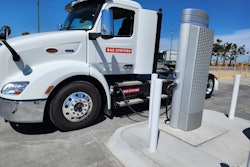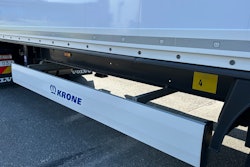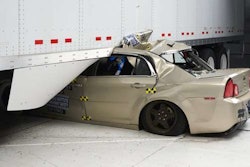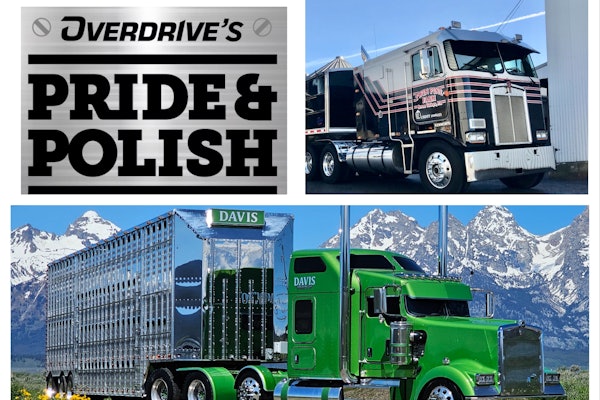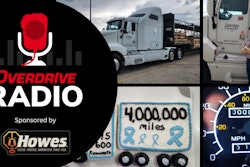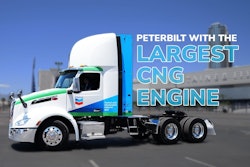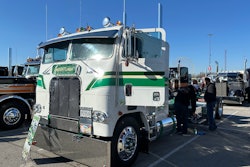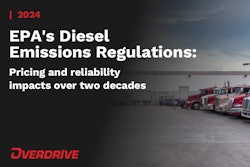Trucking news and briefs for Monday, July 15, 2024:
Another petition to strengthen rear underrides rejected
For the second time in recent weeks, the National Highway Traffic Safety Administration is denying a petition requesting that the agency include additional requirements in its rear underride regulations.
The petition was submitted Aug. 18, 2022, by Jerry and Marianne Karth, Eric Hein, and Lois Durso-Hawkins. It requested that NHTSA amend Federal Motor Vehicle Safety Standards (FMVSS) No. 223, “Rear impact guards,” and FMVSS No. 224, “Rear impact protection,” to include additional requirements.
[Related: Claims trailer rear-impact guard standards are 'inadequate and dangerous' shot down by NHTSA]
A similar petition from Jerry and Marianne Karth, Eric Hein, Lois Durso-Hawkins, Aaron Kiefer, Andy Young, and Garrett Mattos dated July 15, 2022, asked the agency to reconsider its July 15, 2022, final rule adopting requirements similar to Transport Canada’s standard for rear impact guards. NHTSA noted that the petition did not meet the requirements for a petition for reconsideration, so the agency considered it a petition for rulemaking.
Due to similarities between the two petitions, NHTSA responded to both in one Federal Register document published Monday.
In the Aug. 18 petition, the petitioners requested that NHTSA initiate rulemaking to require that rear impact guards on trailers provide protection in 30% overlap crashes at up to 35 mph. They claimed the agency had failed to fulfill Congressional directives by not requiring this standard in the July 2022 rulemaking. The petitioners’ July 15, 2022, petition made essentially the same arguments, NHTSA added.
[Related: Heated debate over recommendations for improving underride guard regulation]
In denying the petitions, NHTSA said its FMVSS “must be practicable, it must meet the need for motor vehicle safety, and it must be objective, reasonable, and appropriate for the motor vehicle type for which it is prescribed. While a particular trailer model may include a more robust guard as standard, the agency must consider the effect of a mandate on all vehicles subject to FMVSS No. 223 and FMVSS No. 224.” (Emphasis in original.)
The agency added that an analysis of the costs and weights for currently available trailers led to a conclusion that a 30% overlap condition “would not be reasonable or practicable.”
The petitions were ultimately denied because the petitioners “did not provide new or different information that would warrant initiation of a rulemaking at this time.”
NHTSA’s Advisory Committee on Underride Protection, in a recent report submitted to the agency, recommended stronger rear impact guards, though the merits of the committee’s report have come under fire both from within and outside of the committee.
[Related: 'Doomed' underride committee under fire]
Higher penalties, jail time now possible for violating Wyoming wind restrictions
The Wyoming Department of Transportation is reminding drivers of new penalties for violating highway closures to light and high-profile vehicles that went into effect July 1.
The “Light and high-profile vehicle closures bill” passed in the 2024 legislative session. The bill language notes that “any person who willfully fails to observe any sign, marker, warning, notice or direction” for closures to light, high-profile vehicles is guilty of a misdemeanor, and upon conviction, subject to a fine of $1,000 and potential imprisonment for up to 30 days.
If the motorist is convicted of subsequent offenses within three years of the first offense, the violator is subject to a $2,500 fine. The conviction would be deemed reckless driving under Wyoming Statute 31-5-229, with possible licensing action for the driver.
Also new with the legislation, the driver of the light and high‑profile vehicle at the time of the violation would be liable, upon conviction, for any of the above penalties.
“We hope these new penalties will be a better deterrent for drivers who otherwise may decide to test their luck and chance the wind closures to save some time,” said Col. Tim Cameron with the Wyoming Highway Patrol. “We see time and time again that this gamble results in crashes, injuries and lost time for everyone if the road has to close for cleanup.”
[Related: 'Estimated opening time is unknown': Winter from hell on I-80 in Wyoming]
This new law does not just apply to commercial drivers. RVs, campers, moving vans, utility trailers and other large, boxy vehicles or trailers are also considered light and high profile and are subject to these penalties.
WYDOT noted that the law’s new fines also apply to “other weight-based closures” that aren’t necessarily wind-related. “Even on highways without strong wind restrictions, like Wyoming Highway 22/Teton Pass, drivers who willfully disregard weight restriction signage will be subject to these steeper penalties,” Cameron added.
Drivers can see any active wind-related highway closures, high wind warnings and weather sensors online here.
Benore Logistic utilizing renewable diesel at South Carolina terminal
Benore Logistic Systems announced this month a new initiative to advance its sustainability efforts through the delivery of renewable diesel directly to its South Carolina terminal. The initiative is in partnership with Michelin North America and Pilot Travel Centers.
Last month, the collaboration reached a milestone with the successful demonstration of a renewable diesel load at Benore's Pendleton, South Carolina, terminal.
Renewable diesel, an alternative to traditional petroleum diesel, is derived from renewable resources such as vegetable oils, animal fats, and greases. Its production process significantly reduces greenhouse gas emissions compared to conventional diesel, contributing to cleaner air and a healthier environment.
The inclusion of renewable diesel exemplifies the commitment of Benore, Michelin, and Pilot to environmental stewardship and sustainable business practices, the companies said.
By utilizing renewable diesel exclusively in Benore's Michelin-dedicated truck fleet, the companies aim to not only reduce their carbon footprint but also set a new standard for sustainability.
"We are excited to lead the charge in promoting renewable diesel as a viable and sustainable fuel option," said Jeffery M. Benore, President and CEO at Benore Logistic Systems. "This initiative is a testament to our shared vision with Michelin and Pilot to prioritize environmental responsibility while maintaining operational efficiency."
In addition to promoting renewable diesel, the companies are actively exploring logistics solutions for large-scale distribution and developing strategies to make renewable diesel more accessible to businesses and consumers alike.
[Related: Renewable diesel, not electric, key to cutting trucking emissions: Report]
